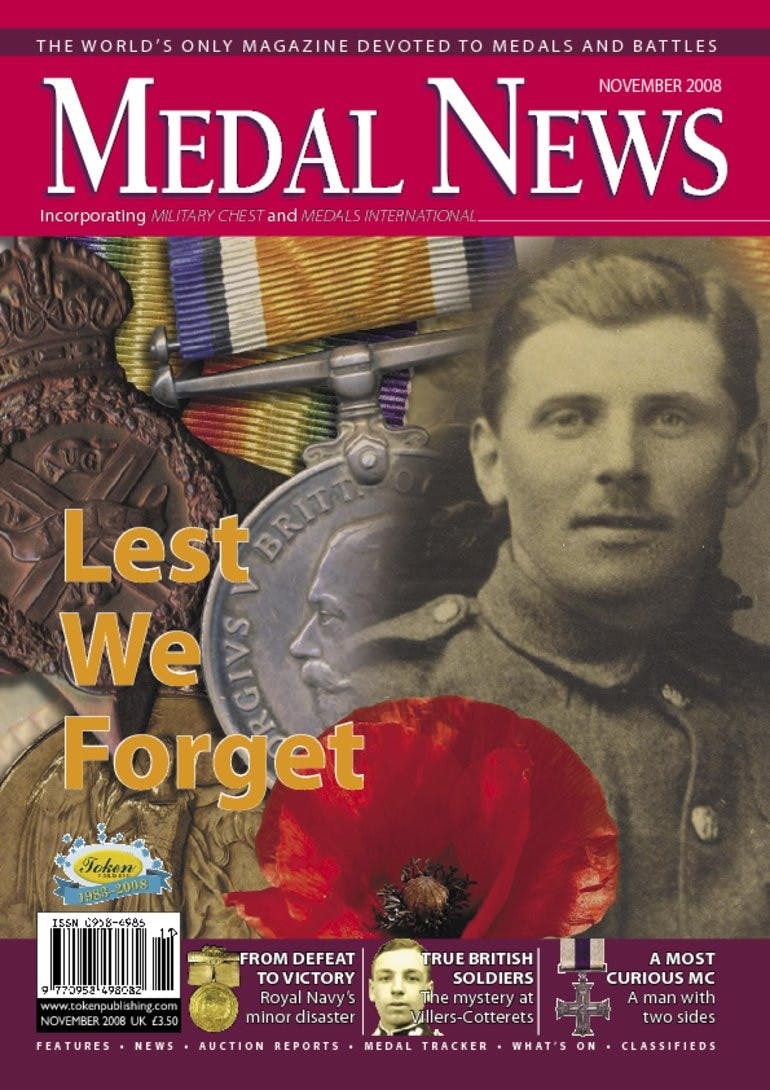Lest we forget
Volume 46, Number 10, November 2008
We must remember There can be few in our hobby, indeed one hopes few in the country, who do not realise that this November marks 90 years since the end of World War I. It has been nine decades since the guns fell silent at eleven o’clock on the eleventh of the eleventh and "the war to end wars" came to a close. As we all know, the fond hope that hostilities between all peoples would end for all time was in vain. Barely 20 years later the same protagonists were fighting each other in another global conflict and only the advent of nuclear weaponry stopped a third world war—smaller wars, of course, did not end. Incredibly only one year of the 20th century-1968-saw no British servicemen killed on active duty and, as we know, the early years of the 21st century have had more than their fair share of tragedies in Iraq and Afghanistan. On reflection the hope that the "Great War" really would be the final conflict was an impossible dream: aggression is a human trait, just as it is in so many other members of the animal kingdom and whilst it is true that we seem to have added other elements like religion, greed and politics to add fuel to the fire and make that aggression worse, there can be little doubt that even were we all to become apolitical atheists somebody would still find something to fight about. For thousands of years wars have been fought-from the ancient civilisations of Egypt, Greece and Rome, through the medieval conflicts in Western Europe and the Crusades to the Holy Land onto the Empire Building of the 19th century and beyond-ever since mankind could think rational thoughts (and probably before), there has been conflict. The world is an imperfect place, the people who live on it are imperfect people and such imperfection inevitably leads to disharmony and conflict... even millions of men living and dying in the trenches of France and Flanders wasn’t going to stop that. War then is a human failing and the television pictures we sit down to every evening, the newspapers we read every morning are testament to the fact that it won’t go away. The trouble is because it won’t go away, because conflict, death, car bombs, fire fights and casualties are so much part of life now as they’ve always been, they rarely make headline news anymore (certainly these things are mentioned, but rarely do they take centre stage these days, the credit crunch has seen to that) and so we are in danger of forgetting that whilst war will always be with us it isn’t something that just happens. It actually happens to real people, not actors or extras but real people with real lives. Of course, as medal collectors we should be more conscious than most that war is something that affects real individuals, but unfortunately we are often in danger of forgetting that the medals we hold in our collections (maybe proudly displayed in a cabinet or on the wall in frames or perhaps locked safely away in a bank somewhere) all represent real service, service in action that was as every bit as real to those taking part as the conflicts in Afghanistan and the Middle East are today. Too often we treat our medals as commodities, just things to be bought and sold, and we forget that whilst it’s "just a pair" or "just a trio", to us in fact it really is something far more important than just a few bits of metal. Most of us will, I’m sure, have researched the "better" groups in our collections, delved deep into the past of those who were awarded the most interesting or rarest combination of medals, but this Remembrance Day try looking again at the lowliest medals you may have in your collection. Look again at the singles, the pairs, the "ordinary" medals that you haven’t yet bothered to research properly (it doesn’t matter if they aren’t from World War I, the principle is the same), and remember those men (and women) who fought, who have now faded away and who really would be forgotten if it wasn’t for their closest family and collectors like us. Look at those medals, spare a thought for their recipient and remember that whilst war may be a human weakness the ability to honour and give thanks are human strengths and should be exercised as often as we can - so once a year really isn't too much to ask.
Order Back Issue
You can order this item as a back issue, simply click the button below to add it to your shopping basket.

